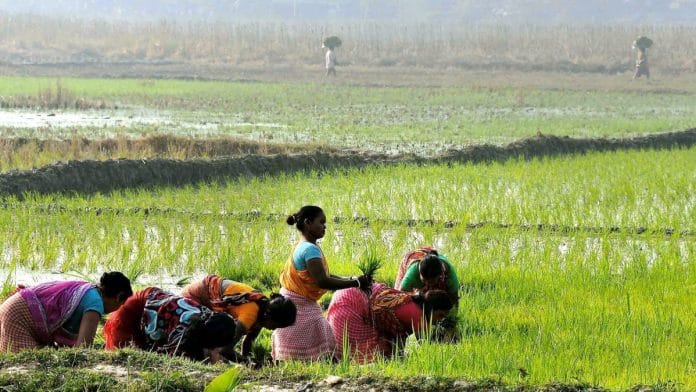The Modi government is pushing for a Land Leasing Act to make land tenancy easier before the upcoming elections.
New Delhi: The Model Agricultural Land Leasing Act proposed by the NITI Aayog to simplify the leasing of farm land has come in for objections from affiliates of the RSS.
The proposed law is part of the Modi government’s larger plan to ease rural distress and boost farm incomes and NITI Aayog is said to be under pressure to finalise the draft ahead of Lok Sabha elections due next year.
India does not have a national land leasing framework and NITI Aayog, under the leadership of agricultural economist Dr Tajamul Haque, was in 2015 asked to review existing state tenancy laws and prepare a model act that could make land leasing much easier.
The panel headed by Haque submitted its report in 2016.
The new law that will be made based on the recommendations of the panel will legalise the entire tenancy process for agricultural land at the national level. Once it is in place, even tenant cultivators will have access to institutional loans and insurance schemes for crops and other farming inputs.
But Sangh affiliates such as the Bharatiya Kisan Sangh, Swadeshi Jagran Manch and Kisan Union objected to some provisions in the draft at a meeting with NITI Aayog representatives on 13 April, sources said.
Objections by the Sangh affiliates
BKS members raised two main objections to the provisions in the draft law—about its credit facility and the period of lease. They suggested that the law should empower both the lessor and the lessee to take a call on the period of lease. The participants also suggested changes so that the lessee can avail institutional credit benefit.
“These are very practical issues. The farmer doesn’t take the loan just for crops. If you don’t let the lessor avail loan benefits, he will be forced to get a loan from non-institutional sources at a much higher rate,” a member present at the meeting said.
Why the pressure to finalise the law
The Modi government has been keen on the law and it was even mentioned by finance minister Arun Jaitley in the 2018-19 Union Budget.
“NITI Aayog, in consultation with state governments, will evolve a suitable mechanism to enable access of lessee cultivators to credit without compromising the rights of the landowners,” he had said.
Jaitley also considered the lack of such an act to be the reason why “a significant proportion of arable land remains fallow”.
A NITI Aayog source told ThePrint that with election season approaching it was under pressure to finalise the draft. “With elections approaching, there is huge pressure to deliver the draft. The PMO is taking farmers issues very seriously,” the source said, adding that a final draft will be sent to the government by the end of the month.






